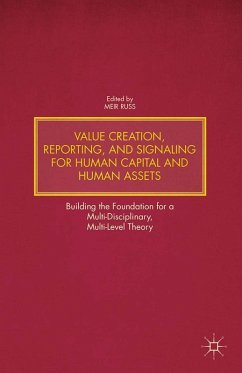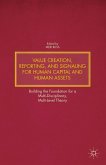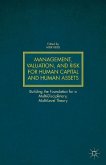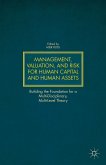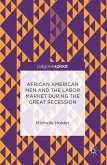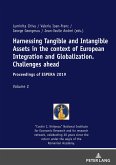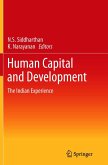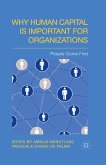"Human capital is admittedly the most important resource for all types of organizations and, indeed, for economic development of countries. And, although, much research has focused on human capital, more is needed. This volume extends the frontiers of our knowledge of human capital by providing a multidisciplinary and multilevel view of this critical resource. I commend this volume to all scholars interested in the advancement of our understanding of human capital." - Michael Hitt, Joe B. Foster '56 Chair in Business Leadership, Department of Management, Texas A&M University
"Research on intangible and human capital has been growing over the past 20 years. This volume, advancing the frontier of research on intangibles' contribution to value creation, is an important addition to the intangibles' area. It should be of considerable interest to scholars and practitioners in the area." - Baruch Lev, Philip Bardes Professor of Accounting and Finance, New York University, USA
"There is broad recognition that human assets are among the most important organizational resources. What does it really mean for people to be assets in the context of a high velocity environment with dwindling natural resources? This book takes seriously the value creation, associated costs, and reporting of such assets. It's an excellent read for today's dynamic knowledge-based business world." - Russell Coff, Wisconsin Naming Partners Professor of Strategic Management, University of Wisconsin, Madison, USA.
"This book, edited by Prof. Russ is a valuable contribution in the field of human capital management. After homo politicus, homo economicus, and homo technologicus, the editor proposes homo sustainabiliticus, a new kind of human concerned with the economic profitability, the environmental concerns, and the social responsibilities. This lei motiv, is connecting the chapters of the book that is organized in two parts, namely Value Creation and Reporting and Signaling. The book presents seven papers that extend the existing literature on the topic providing new insights in human capital management for researchers and practitioners alike." - Ricardo Colomo-Palacios, Østfold University College, Norway, and Editor-in-Chief, The International Journal of Human Capital and Information Technology Professionals
"This book starts with the rather uncontroversial proposition that we are in a knowledge economy. Still, and much more interesting, the book offers a multiple tale of how human capital is being depicted from different streams of research and, by offering this multi-discipline approach, the book show how different ontologies presents the human capital in the knowledge economy. This makes it possible for students of accounting to read beyond the current state of accounting research and to become introduced to other ways of approaching the issue. This is crucial since if we cannot learn from others, who can we learn from?" - Bino Catasús,Chair in Accounting, Stockholm University, Sweden
"Research on intangible and human capital has been growing over the past 20 years. This volume, advancing the frontier of research on intangibles' contribution to value creation, is an important addition to the intangibles' area. It should be of considerable interest to scholars and practitioners in the area." - Baruch Lev, Philip Bardes Professor of Accounting and Finance, New York University, USA
"There is broad recognition that human assets are among the most important organizational resources. What does it really mean for people to be assets in the context of a high velocity environment with dwindling natural resources? This book takes seriously the value creation, associated costs, and reporting of such assets. It's an excellent read for today's dynamic knowledge-based business world." - Russell Coff, Wisconsin Naming Partners Professor of Strategic Management, University of Wisconsin, Madison, USA.
"This book, edited by Prof. Russ is a valuable contribution in the field of human capital management. After homo politicus, homo economicus, and homo technologicus, the editor proposes homo sustainabiliticus, a new kind of human concerned with the economic profitability, the environmental concerns, and the social responsibilities. This lei motiv, is connecting the chapters of the book that is organized in two parts, namely Value Creation and Reporting and Signaling. The book presents seven papers that extend the existing literature on the topic providing new insights in human capital management for researchers and practitioners alike." - Ricardo Colomo-Palacios, Østfold University College, Norway, and Editor-in-Chief, The International Journal of Human Capital and Information Technology Professionals
"This book starts with the rather uncontroversial proposition that we are in a knowledge economy. Still, and much more interesting, the book offers a multiple tale of how human capital is being depicted from different streams of research and, by offering this multi-discipline approach, the book show how different ontologies presents the human capital in the knowledge economy. This makes it possible for students of accounting to read beyond the current state of accounting research and to become introduced to other ways of approaching the issue. This is crucial since if we cannot learn from others, who can we learn from?" - Bino Catasús,Chair in Accounting, Stockholm University, Sweden

